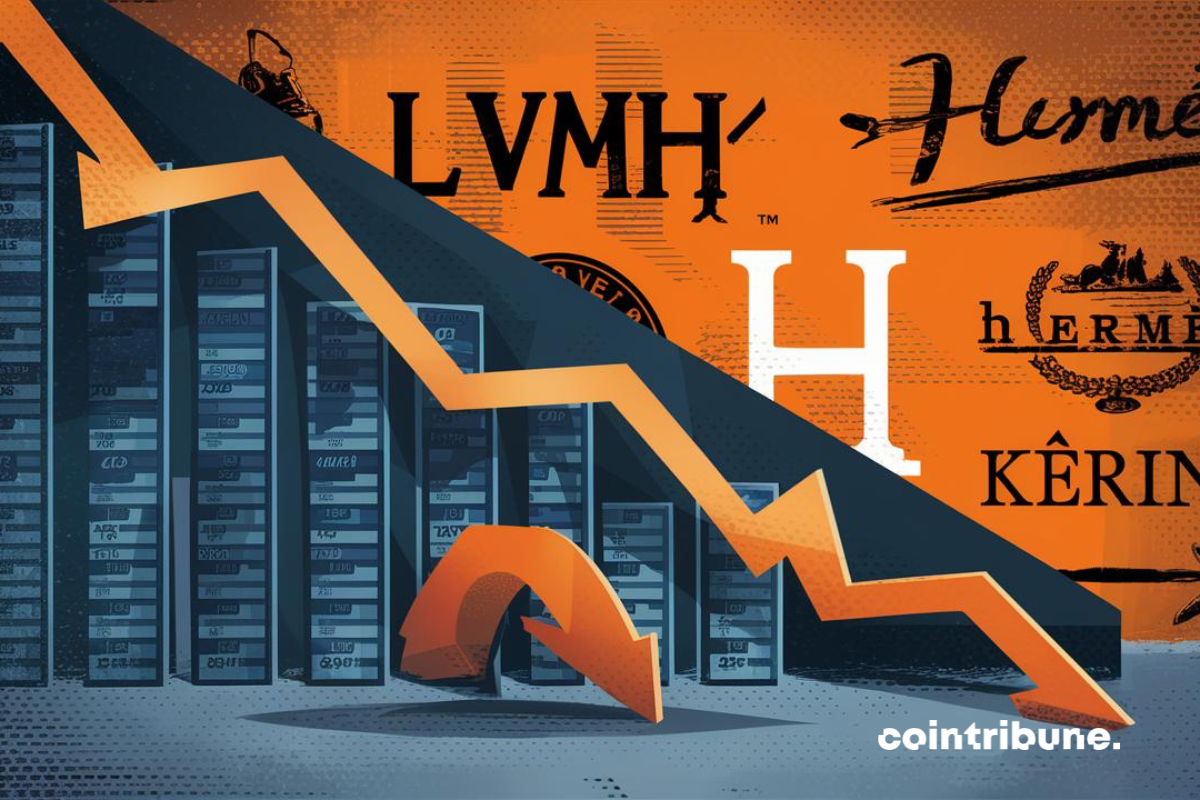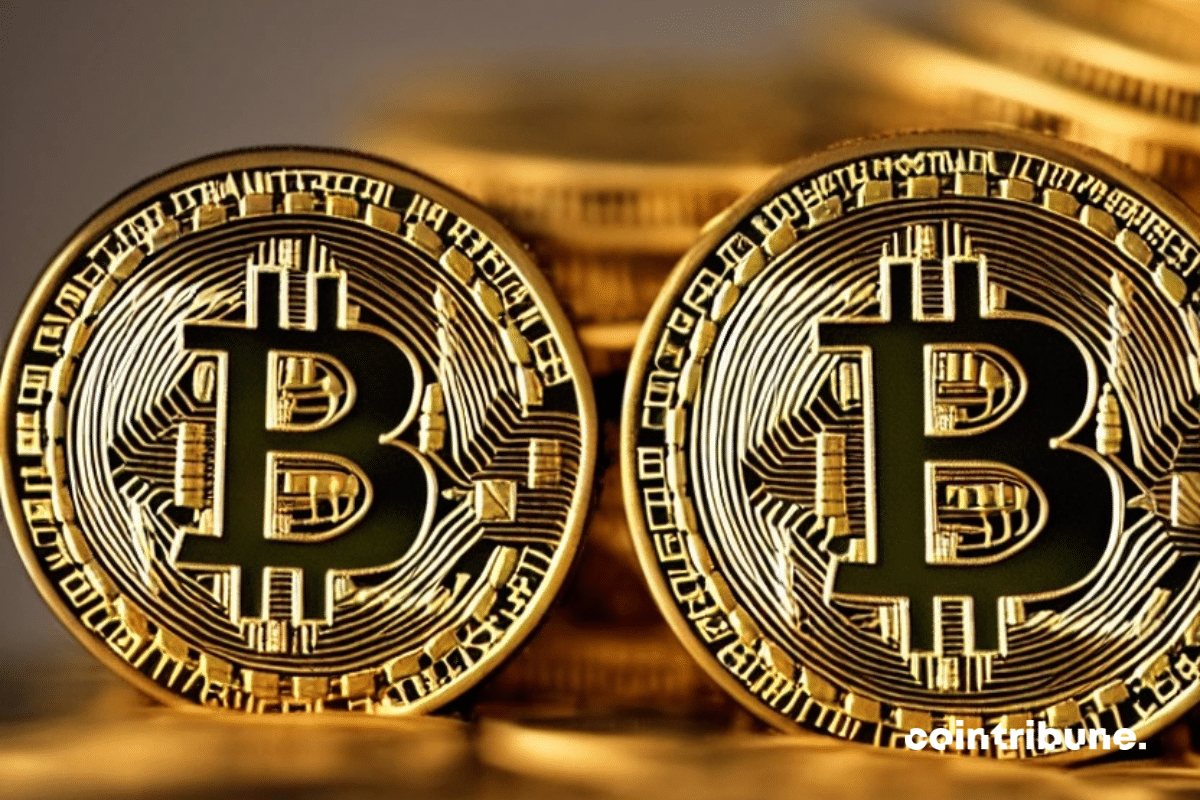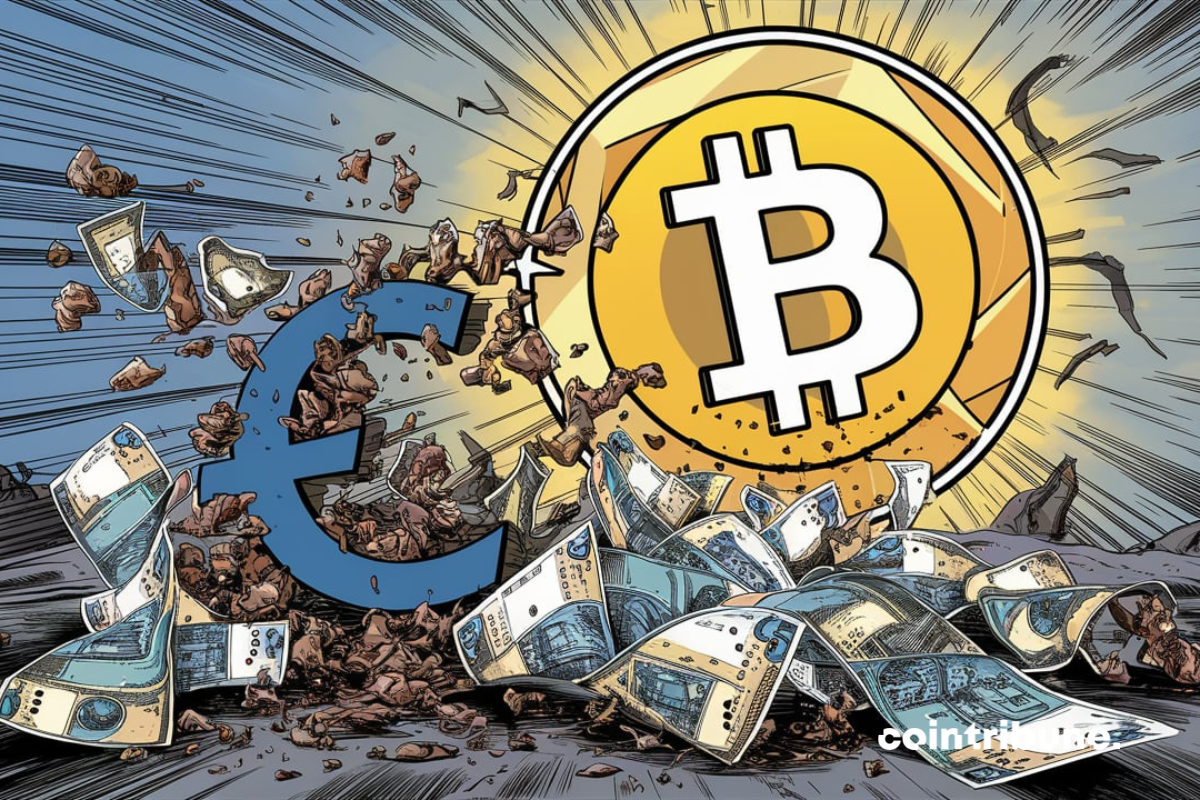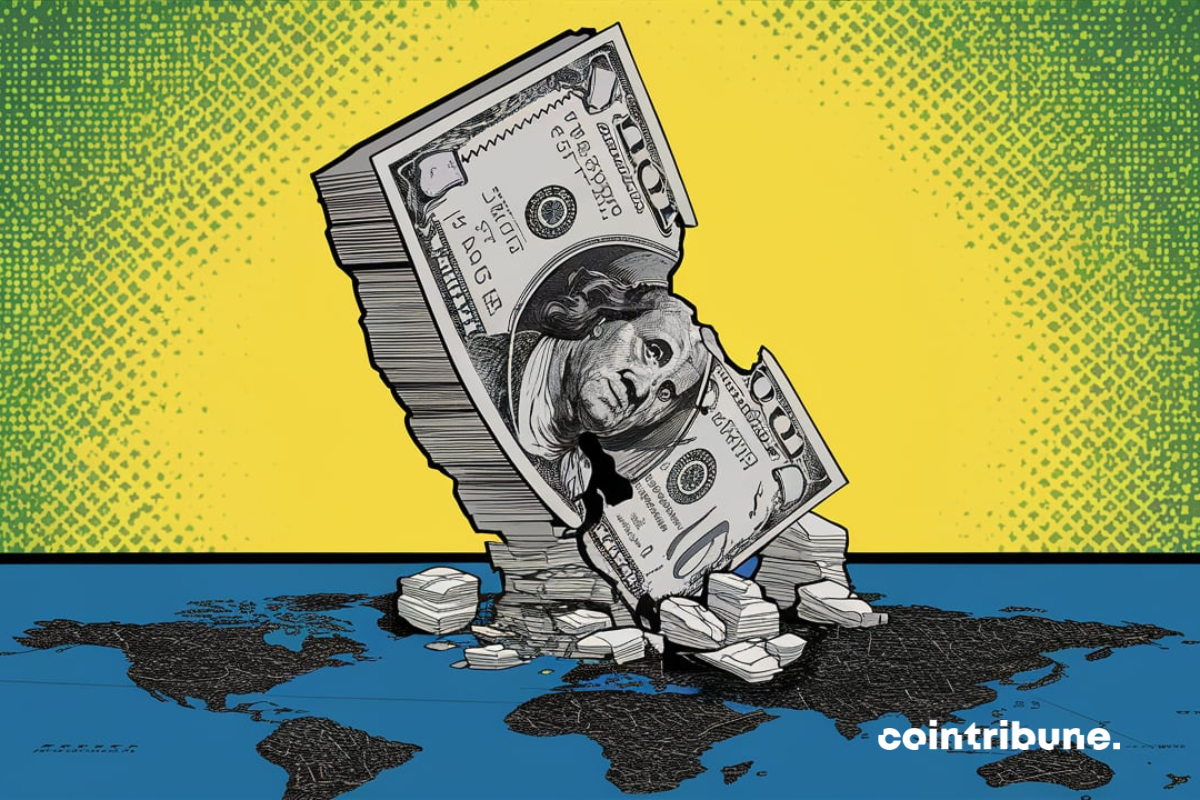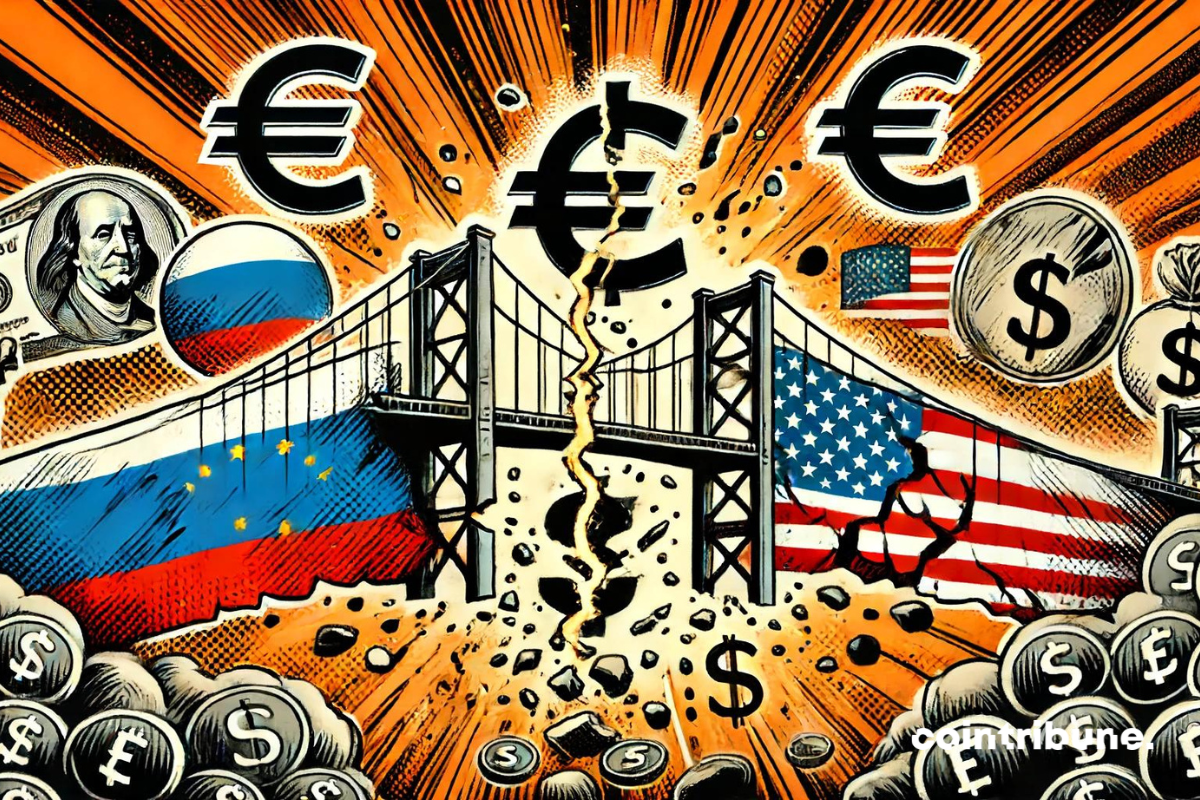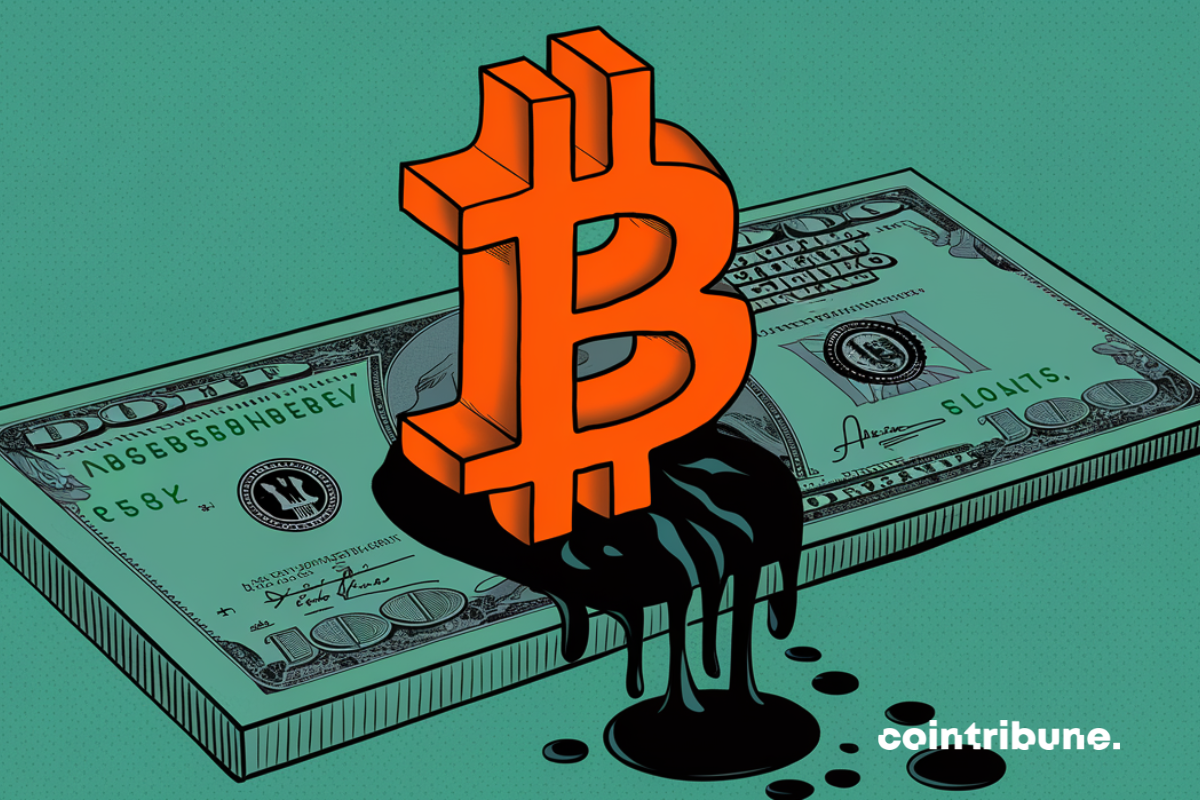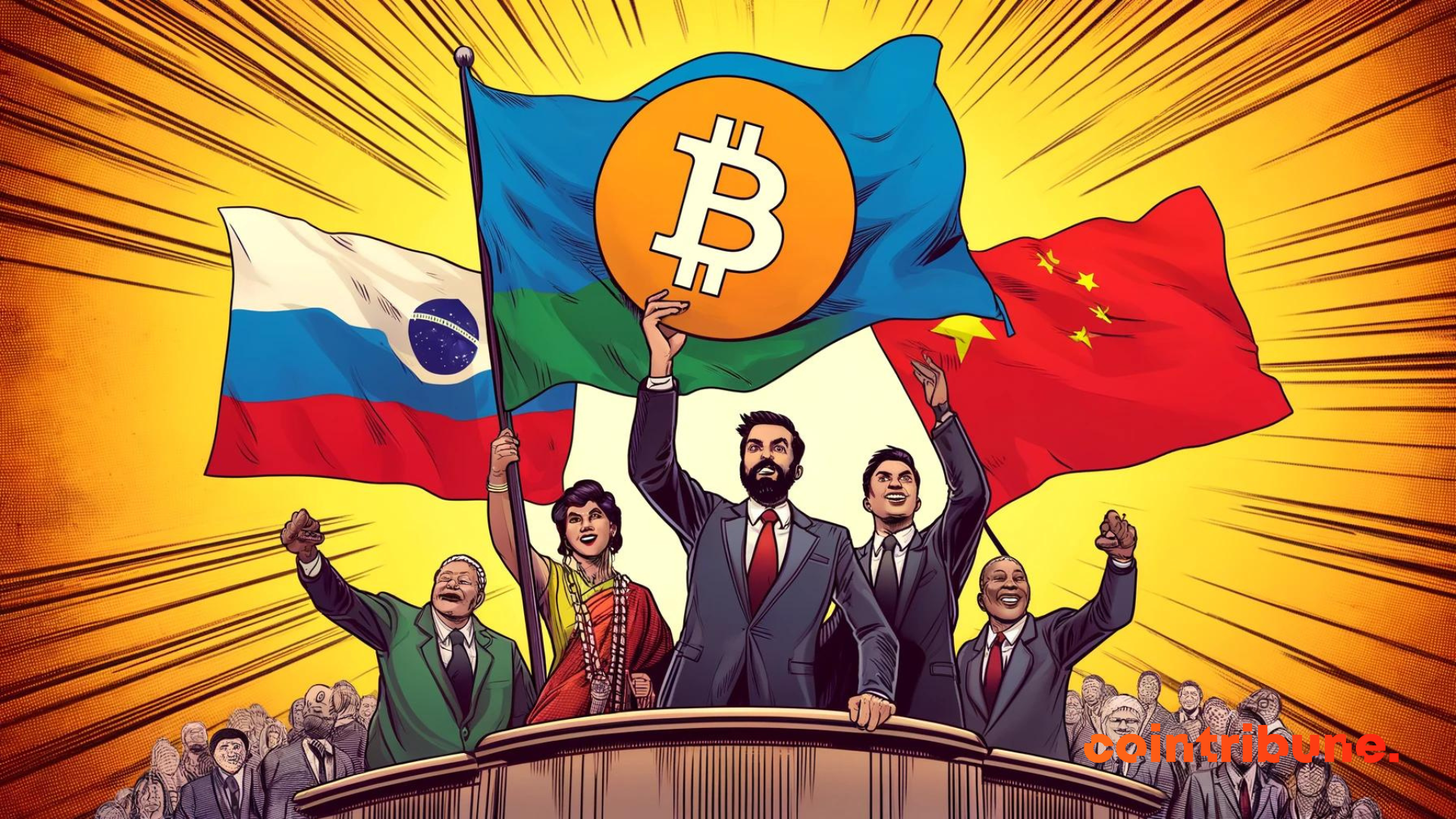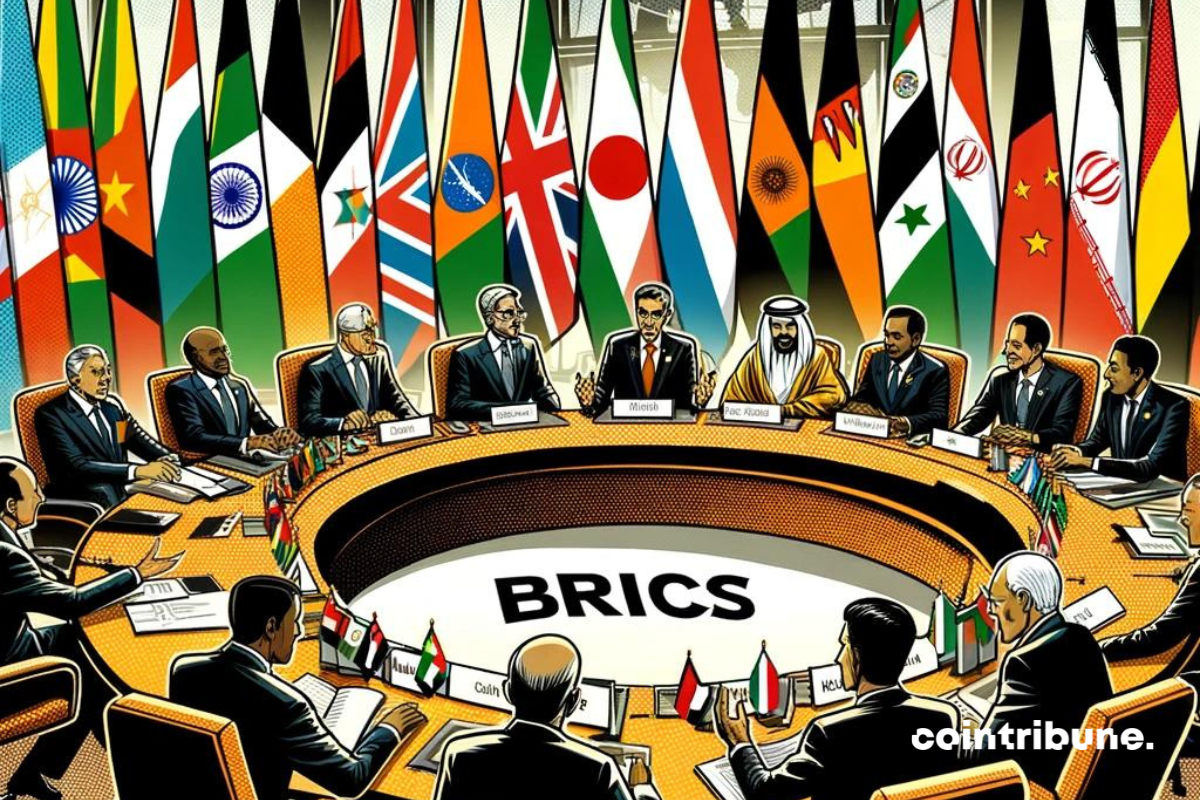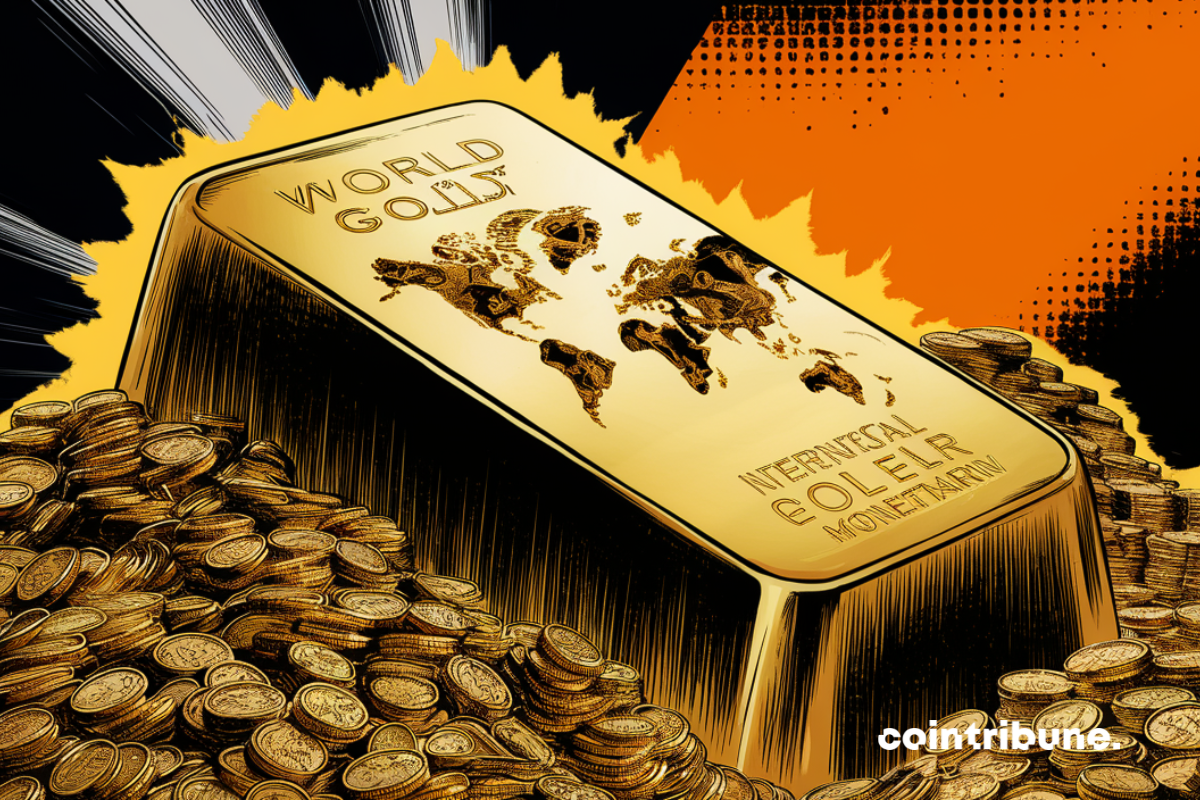In an effort to reduce their dependence on the US dollar, BRICS member countries are intensifying their efforts to establish a new global economic dynamic. This initiative, driven by recent developments and major agreements, could disrupt the current balance of international trade.
Dollar
Russia warns that the dollar monopoly must end. Bitcoin is becoming an obvious choice, even for Trump...
As Trump is likely to win the American elections, the United States could then disengage from NATO.
The new expansion of BRICS into Southeast Asia could transform the global energy landscape. According to a recent analysis by Rystad Energy, the alliance could trigger a $100 billion increase in the oil industry by 2028. This development is generating a lot of interest in the context of redefining global economic dynamics.
The Paris stock exchange falls, weighed down by luxury. The CAC 40 falls on disappointing sector results. Details in this article.
The Indian Prime Minister traveled to Moscow to address the issue of the Indian trade deficit.
Saudi Arabia threatens to sell European debt in case of seizure of Russian reserves.
The United States is facing multiple perils: debt, inflation, civil war... Yet, a terrifying threat could be imminent and lead to the fall of the United States, in a historical event comparable to 1945.
Saudi Arabia has joined the mBridge international payment system project. Another step towards the end of the petrodollar and bitcoin...
Bitcoin was born in one of the most tumultuous financial contexts the United States, indeed the whole world, has ever known. From 2007 to 2009, with the subprime crisis, a feeling of mistrust towards governments and banks gripped the population, leading them to question the entire monetary system.
The decoupling from the US dollar, a key ambition of the BRICS, has just suffered an unexpected blow. Despite years of concerted efforts to erode the dominance of the US dollar, a new report from the Atlantic Council reveals that these initiatives have failed to seriously threaten the supremacy of the greenback. This unexpected finding raises doubts about the viability of the economic strategies of the BRICS.
A new front of economic tensions is opening up between China and the European Union, threatening to disrupt the global trade balance. In response to the EU's proposals to impose tariffs on Chinese electric vehicles, China, an influential member of the BRICS, has warned of the possibility of a trade war.
Bitcoin has already massively underperformed Nvidia. While bitcoin has seen its price increase by about 300% in the past 18 months, Nvidia's stock has experienced a surge of over 800%. So, to get rich, is it better to buy Nvidia stocks or BTC?
As the BRICS welcome new members and strengthen their de-dollarization agenda, a burning question emerges: could the Tether stablecoin (USDT) be the United States' secret weapon to preserve their economic hegemony? The implications for the crypto market and the global economy are immense.
The famous trader Peter Brandt issues a stern warning about the future of Tether and the US dollar. His predictions, based on years of observation of both crypto and traditional markets, raise critical questions about the stability of stablecoins and the hegemony of the greenback.
The ECB has published its annual report on the international status of the euro. Will it soon compete with Bitcoin in foreign exchange reserves?
As the BRICS actively seek to dethrone the US dollar from its status as the world's reserve currency, HSBC has issued bold forecasts on the future of the greenback. In the face of these de-dollarization initiatives, HSBC analysts maintain that the dollar will continue to reign as the dominant currency for decades to come.
India and the United Arab Emirates are determined to replace the dollar with their national currencies.
Ukraine, Middle East, Pacific... : war is back. As conflicts multiply, what is the optimal financial strategy in times of war?
The Chinese yuan has been trying for years to dethrone the US dollar as the world's reserve currency. Despite gaining power and making constant efforts, the Chinese currency has not yet succeeded in surpassing the greenback. As de-dollarization gains momentum, the yuan struggles to establish itself as a credible alternative.
The IMF has published its quarterly update on central banks' foreign exchange reserves. The dollar is free-falling. Bitcoin as an alternative?
What happens when one of the world's leading financial markets suspends transactions in major global currencies? The Moscow Stock Exchange has just done so in direct response to American economic sanctions. Could this Russian initiative redefine the rules of international trade and global financial relations? Initial reactions and analyses suggest significant changes on the horizon, impacting not only this member of the BRICS, but also the global economic balance.
Saudi Arabia reportedly decided "not to renew its 50-year agreement on the petrodollar with the United States". Will the petro-bitcoin be next?
"The Bretton Woods system is dead," said Vladimir Putin. What if we replaced it with Bitcoin?
A new movement of non-aligned countries is emerging. All gathered under the orange banner of Bitcoin (BTC). Faced with the printing press, can the Bitcoin network represent an alternative as significant as the Soviet Union was to the United States during the Cold War?
The Chinese central bank has significantly slowed down its gold purchases in recent months. Is this the beginning of a strategic shift? What about bitcoin?
The election of Donald Trump in November could well plunge America into a bloody internal chaos. He is preparing to wage total war on American institutions: from the military to the justice system! Are we headed towards an American dictatorship?
The BRICS is gearing up for a major expansion as seven new countries have officially submitted their applications to join the alliance before the 2024 summit. This development, which signifies a significant shift in global geopolitics, reflects the growing appeal of this bloc and its ambitions to reshape the global economic order. By bringing in new nations, the BRICS could redefine international and economic relations, posing challenges and opportunities for global players.
New Delhi repatriated its gold from England, a sign that a new international monetary order is in the making. Bitcoin lying in wait
In the face of a constantly evolving global economy, investors are on high alert. Recently, Peter Schiff, a renowned economist and avid gold advocate, issued a clear warning against buying US dollars. According to him, the combination of rising Treasury bond yields and runaway inflation could precipitate a dramatic depreciation of the US currency. A perspective that deserves special attention from all economic actors.




